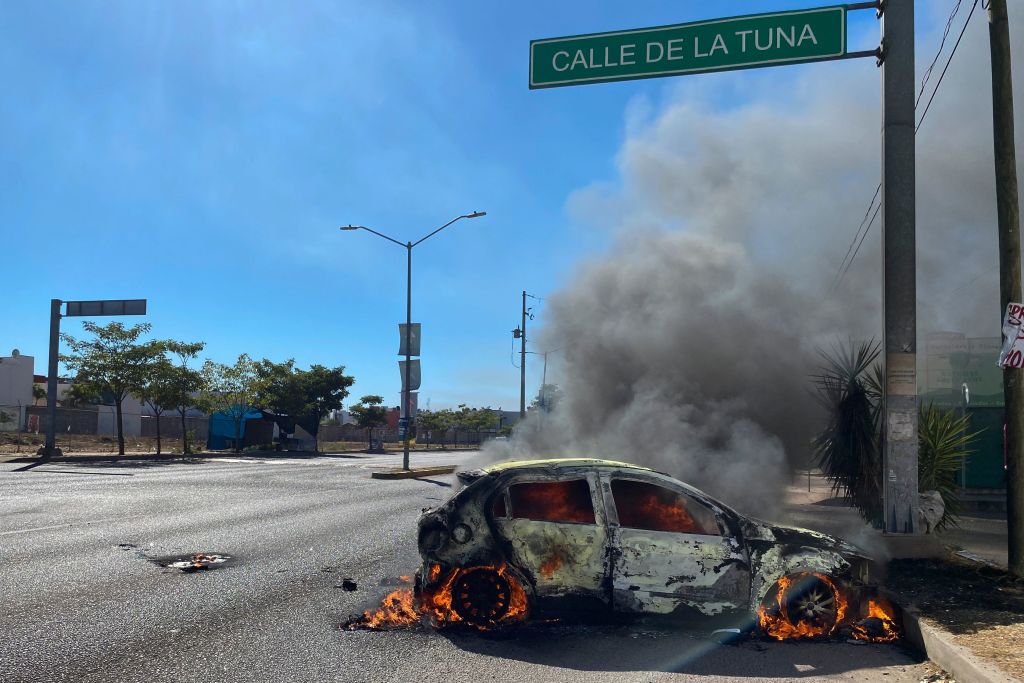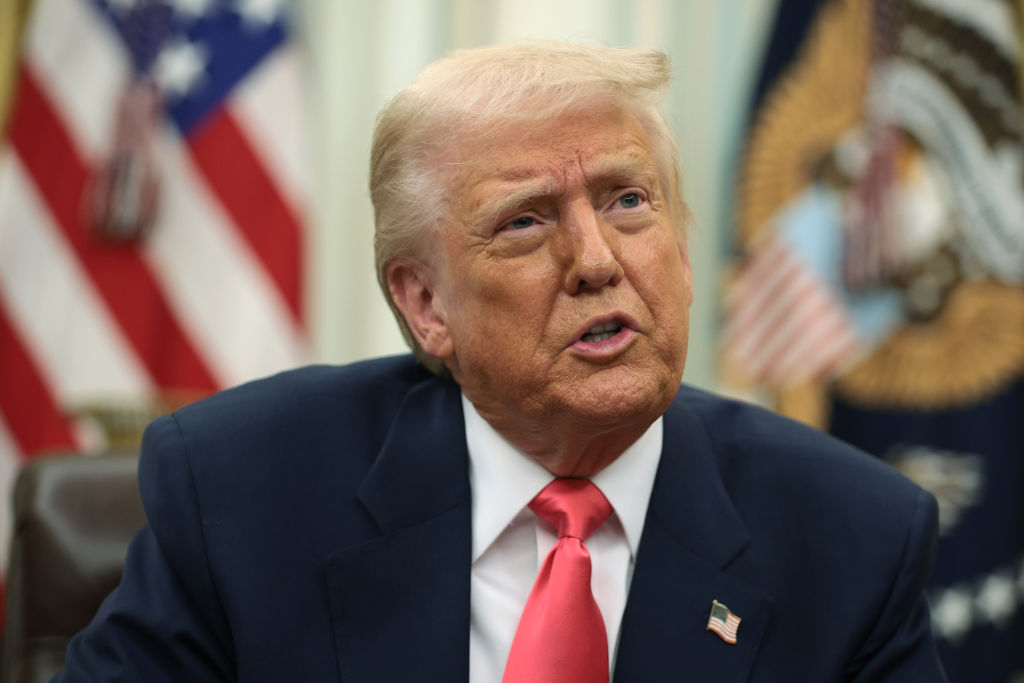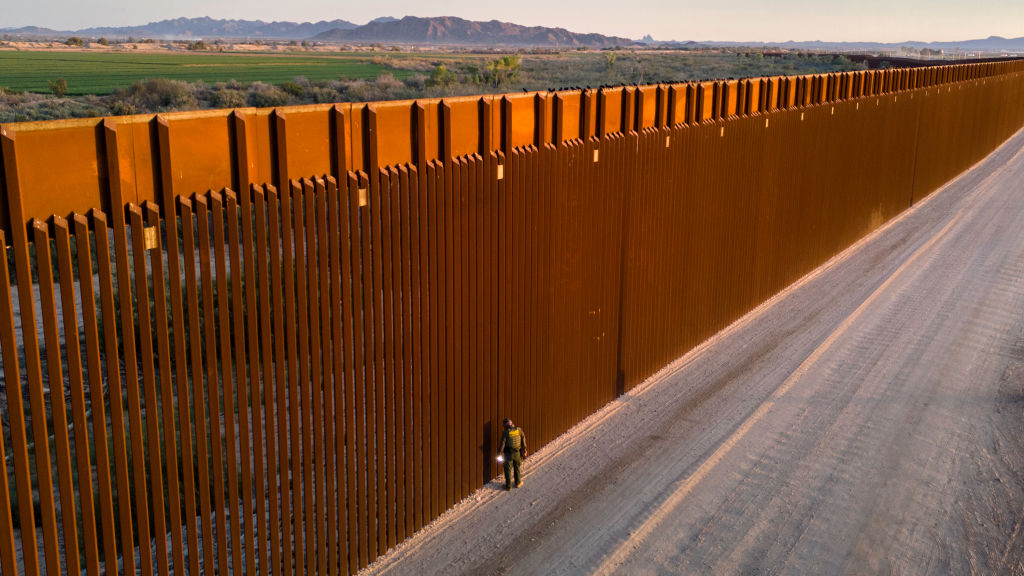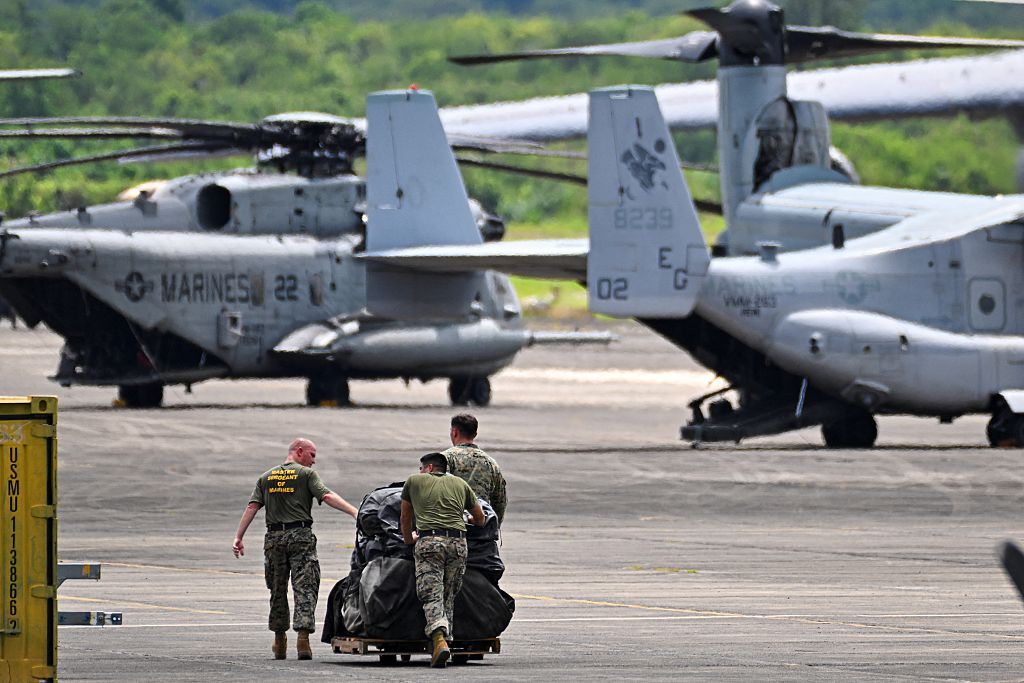Responding to a voter during a campaign stop this week, Florida governor and 2024 presidential candidate Ron DeSantis endorsed a once fringe idea that is becoming increasingly mainstream in Republican policy circles: that the United States has the right, indeed obligation, to use military force in Mexico to protect the American people from drug cartels.
And yes, that includes the use of US drones, a revolutionary military technology the US military and CIA have deployed repeatedly to target terrorists in countries such as Afghanistan, Iraq, Libya and Somalia (among others).
“We will absolutely reserve the right if they’re invading our country and killing our people,” DeSantis told the voter. Prodded by NBC News to clarify, the governor was unequivocal: “We’d be willing to lean in against them, and we reserve the right to defend our country.” His comments came about six weeks after his campaign released an immigration policy blueprint, entitled “Stop the Invasion,” that aims to strengthen the security of the US-Mexico border. One of those bullet points was to send an ultimatum to the Mexican government: if you don’t stop fentanyl precursor chemicals from coming into your ports, the US Navy will do it for you.
While this proposal may sound bold and brash, it certainly isn’t surprising. Tapping military tools to combat Mexican drug cartels is now a legitimate policy option for many GOP presidential candidates. Former president Donald Trump mused about bombing drug labs in Mexico when he was in the White House; policy advisors have reportedly briefed him on a series of military options, including US troop deployments on Mexican soil, to degrade the cartels’ capacity to manufacture and transport drugs across the border. Senator Tim Scott, another presidential candidate, recommended a financial war against the cartels (something the US Treasury Department is… already doing), before utilizing the “all options are on the table” slogan that is DC code for “we will you bomb you if need be.” In March, Nikki Haley compared Mexico’s cartels to the Islamic State and floated the possibility of a US special operations deployment.
Just because an idea is popular, however, doesn’t mean it’s smart policy. Indeed, it’s difficult to overstate how ineffective and counterproductive a hypothetical US bombing operation in Mexico against the cartels would be.
First, it’s not at all obvious that targeting fentanyl manufacturing plants run by the Sinaloa Cartel or Jalisco New Generation Cartel would have anything but a short-term impact on the organizations’ operations. Fentanyl is not like cocaine; you don’t need acres upon acres of land to cultivate the base ingredients before producing, packaging and shipping the drug. Fentanyl is cheap and easy to produce and provides the cartels with billions of dollars in profit. All the cartels really need is a backroom to pump out the poison, which means any US military operations in Mexico would be a game of Whac-a-Mole, with drug enforcement agents and special forces raiding houses and the cartels packing up and finding additional locations to continue their craft.
It’s not like the US hasn’t employed military force in counternarcotics operations before. Washington spent decades collaborating with the Colombian security forces, up to and including assisting Bogota with targeting the Revolutionary Armed Forces of Colombia, or FARC, and FARC-affiliated drug traffickers through a CIA-backed program during the George W. Bush administration. In Afghanistan, the Trump administration unleashed a two-year bombing campaign against Taliban drug labs, on top of the $9 billion in other counter-narcotics programs, to pressure the insurgency’s revenue streams.
Plenty of buildings were demolished and a lot of drug kingpins were killed, but the operations in both Colombia and Afghanistan didn’t have the long-term effect US authorities were hoping for. The results only grew less impressive over time; Colombia remains the world’s biggest cocaine producer, and the amount of coca plants in cultivation last year was the highest since the UN Office on Drugs and Crime began keeping records. The anti-drug bombing campaign in Afghanistan was even more pathetic, with the US special inspector general unable to determine whether it had any financial impact on the Taliban.
Are we really to believe that what failed to work in Colombia and Afghanistan would succeed in Mexico? The evidence is slim to none. Taking out supply does nothing whatsoever to limit demand in the United States or anywhere else. And if the demand side of the equation is untouched, going after supply is like putting a band-aid on the side of a leaky dam.
Diplomatic considerations should be front-of-mind as well. It’s no secret that Washington’s bilateral relationship with Mexico under Mexican president Andrés Manuel López Obrador (AMLO) isn’t exactly going swimmingly. The October 2020 arrest of former Mexican defense minister Salvador Cienfuegos Zepeda at Los Angeles International Airport for collusion with a mid-sized drug gang in Nayarit continues to hover over US-Mexico relations like a meandering fog. Although then-attorney general William Barr would later drop the charges and send Cienfuegos back to Mexico, AMLO viewed the entire affair as an insult by the overbearing, unilateral neighbor to the north. In retaliation for the arrest, AMLO pushed through a law that prohibited Mexican law enforcement from working with the FBI or the DEA unless approved by a security panel. Washington’s migration priorities aren’t helping matters either — as the Brookings Institution’s Vanda Felbab-Brown told Congress last month, “US counternarcotics and law enforcement bargaining with Mexico is constrained by the US reliance on Mexico to stop migrant flows to the United States.”
Granted, the US and Mexico do still cooperate on counternarcotics programs. The Mexican government has extradited drug kingpins, including the infamous El Chapo, to the US for prosecution. In July, the US Justice Department announced the results of a successful joint US-Mexico operation that dismantled a drug trafficking organization in Sonora. Yet whatever cooperation exists would likely go out the window in the event US bombs start dropping on Mexican soil. Even cooperation on unrelated issues like illegal migration would suffer as a result.
None of this even begins to account for the legalities involved in US military operations in Mexico. While the US always has the right to self-defense, it’s hard to see how any serious lawyer could argue that the self-defense justification applies in the case of Mexico. It’s not like the Sinaloa or Jalisco cartels have dug defensive fortifications along the expansive US-Mexico border in an attempt to overrun El Paso. In many cases, the cartels use American citizens to bring the drugs across the border through legal points of entry. Unless Congress explicitly authorizes the use of force, the operations Donald Trump, Ron DeSantis and Nikki Haley are dreaming about would be illegal and unconstitutional.

























